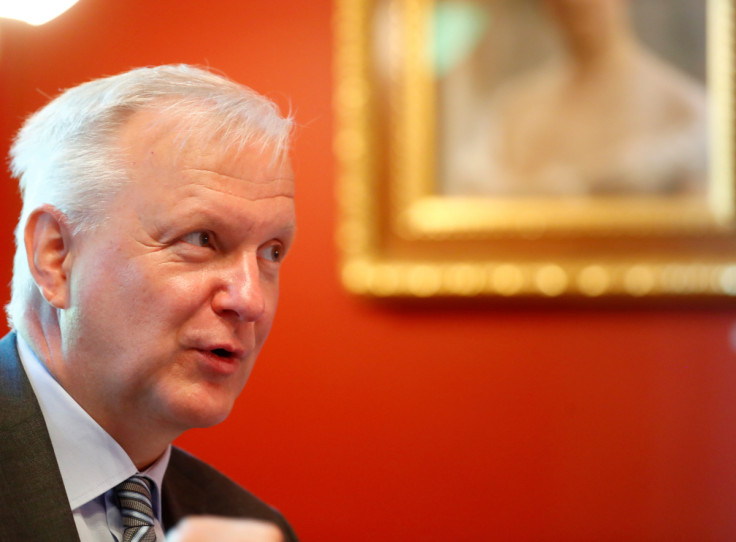ECB Needs Big Oct Rate Hike; Should Hit Neutral Rate This Year, Rehn Says

The European Central Bank must continue to raise interest rates quickly to tame inflation and could reach a level that no longer stimulates the economy before Christmas, Finnish central bank chief Olli Rehn said in an interview.
The ECB lifted rates by a combined 125 basis points in its past two meetings, the fastest pace of policy tightening on record, but inflation is still months from its peak, pointing to even more tightening from a bank that started hiking well after most of its top peers.
"There is a case for taking a decision on another significant rate hike, be it 75 or 50 basis points or something else," Rehn told Reuters without elaborating on what 'something else' may entail.
"Until early this year, I was in favour of gradualism but for now, there is a stronger case for frontloading and determined action," said Rehn, who is generally considered a moderate swing voter on the 25-member Governing Council.
The October move should then be followed by another step that takes the ECB to what policymakers call the neutral rate, which neither stimulates nor slows growth, ending a more than decade-long experiment with ultra-easy policy.
"In my view, we are heading towards the range of the neutral rate by Christmas," said Rehn, 60, a potential Finnish presidential candidate who often tops opinion polls.
"Once we get there, we'll see if there's a case to move into restrictive territory," he said.
"If we deem that the inflation outlook calls for a move towards restrictive territory, so be it."
While undefined, the neutral rate is seen somewhere between 1.5% and 2%, well above the ECB's 0.75% deposit rate.
Markets now see this rate hitting 2% by the end of the year, then rising to over 3% next spring as inflation, now approaching 10%, is forecast to stay above the ECB's 2% target through 2024.
Still, Rehn played down longer-term inflation concerns, arguing that expectations are still "by and large anchored" around the target and that wage growth, a precondition for durable price growth, is missing.
"For euro zone inflation, there is one driver above others and one anchor more important than others," Rehn said. "The driver is obviously energy. The anchor is relatively moderate wage inflation so far."
Europe's labour market may be tight but it is in far better state than in the United States, driving the policy divergence between the ECB and the U.S. Federal Reserve.
On top of rate hikes, the ECB may also need to change how it remunerates excess liquidity, particularly the more than 2 trillion euros ($1.91 trillion) worth of loans handed out to commercial banks, often at zero or negative rates.
Banks now earn a positive return just by parking the cash at the central bank and some, including French central bank chief Francois Villeroy de Galhau, called for changed terms as lenders stand to earn sizeable risk free return while the bloc goes into downturn.
"In the current and future context, one can say that these terms are quite favourable for the banks and I would be in favour of looking into this matter," Rehn said.
While a downturn is increasingly likely to morph into a recession given sky-high energy prices and potential energy shortages, Rehn argued this was still a small price to pay.
"Our suffering is very, very limited compared to what the Ukrainians are suffering because of Russia's illegal and brutal aggression and war."
For a Q&A with Rehn, click on:
($1 = 1.0453 euros)
(Editing by Kim Coghill)
© Copyright Thomson Reuters {{Year}}. All rights reserved.





















